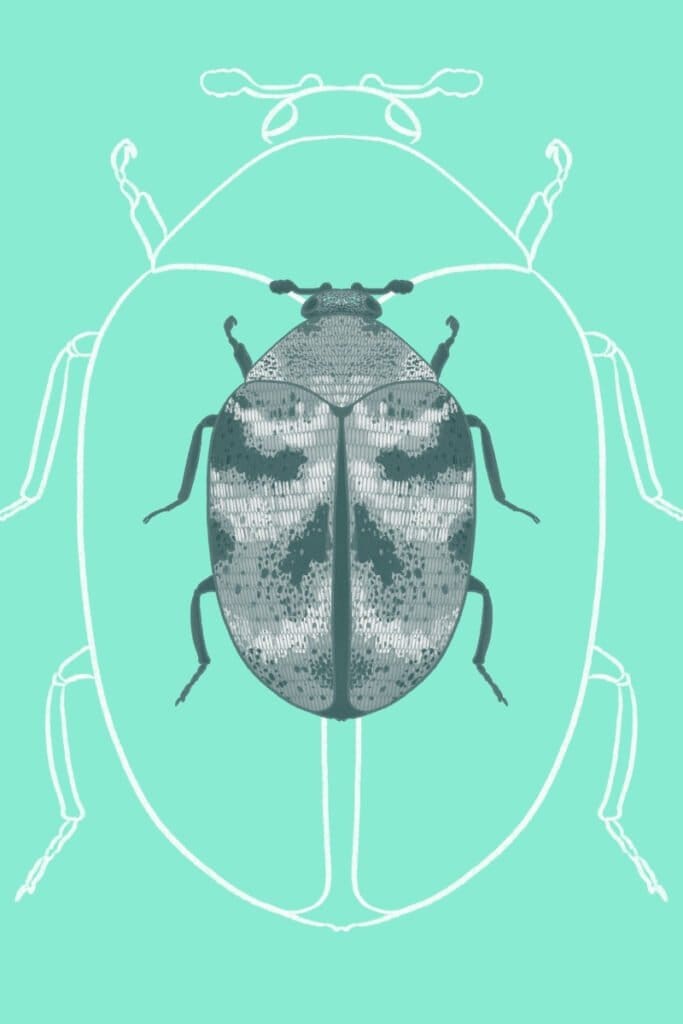
About Carpet Beetles
Carpet beetles normally live outdoors, where they feed on pollen and nectar from flowers. Attracted by light and food sources, they enter homes and buildings by flying through open doors and windows or crawling through small gaps. Oftentimes they are accidentally brought indoors on freshly cut flowers or clothes.
Once inside, adult carpet beetles lay their eggs in cozy hiding spots like carpets, rugs, upholstered furniture, stored clothing and blankets, stuffed animals, air ducts, and even within the lint that collects behind baseboards.
- Adult carpet beetles are most active outdoors between May through July.
- Females lay between 30–100 eggs, which hatch after 1–2 weeks.
- Larvae feed in dark, undisturbed areas and often go undetected, causing extensive damage for long periods of time.
Carpet Beetles in Your Home
Carpet beetle larvae feed on natural fibers, causing damage to carpets, furniture, clothing, furs, stored foods and other plant- and animal-derived items. While larvae do not feed on synthetic fibers, they will feed on blends of wool and synthetics.
Long-term exposure to larva-infested fabrics may lead to carpet beetle dermatitis (rashes or welts caused by hypersensitivity to the tiny larval hairs). In addition to damaging fabric items, carpet beetle larvae occasionally also infest grains and other stored food products.
Small infestations can be managed thorough cleaning, washing fabrics in hot water, freezing infested items, or using diatomaceous earth or boric acid cautiously. For larger infestations or difficulty controlling them, consider professional help. Licensed professionals can use targeted insecticides or fumigation for extensive cases.
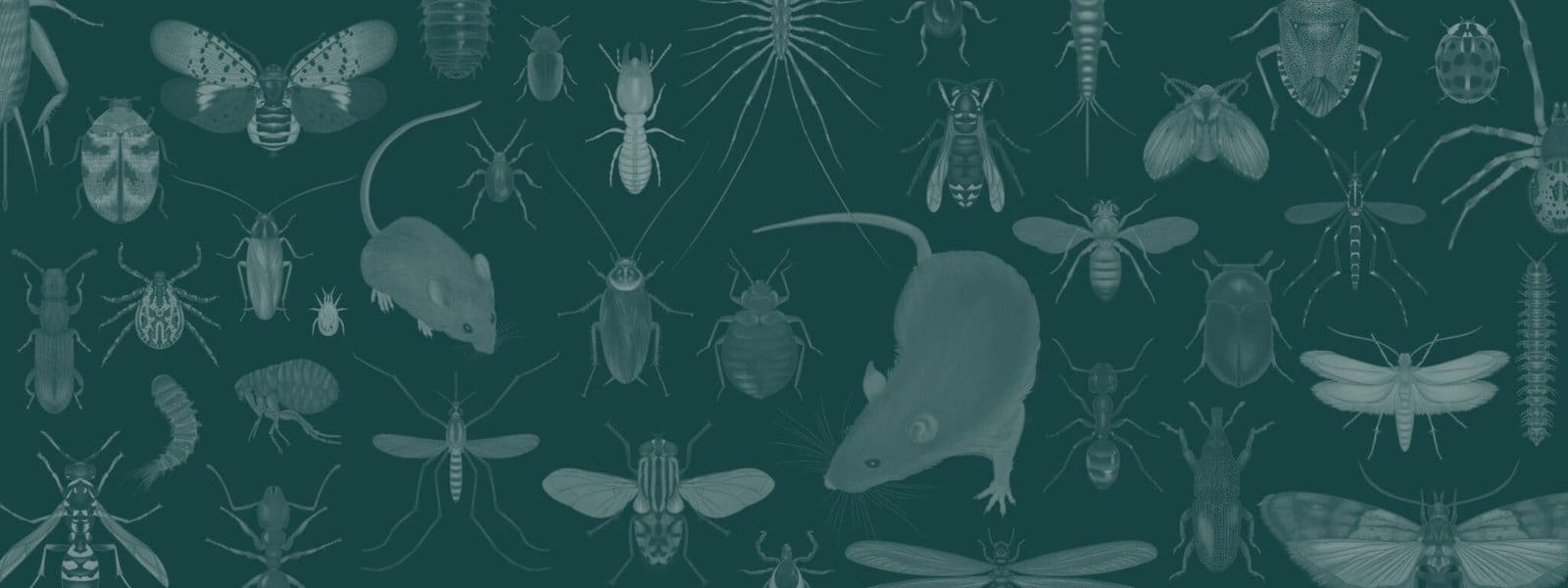
Pest Species in New York City / Tri-State Area:
Black Carpet Beetle
Attagenus unicolor
Black carpet beetles are the most common and most destructive species of carpet beetles, particularly in New York and the northeastern United States.
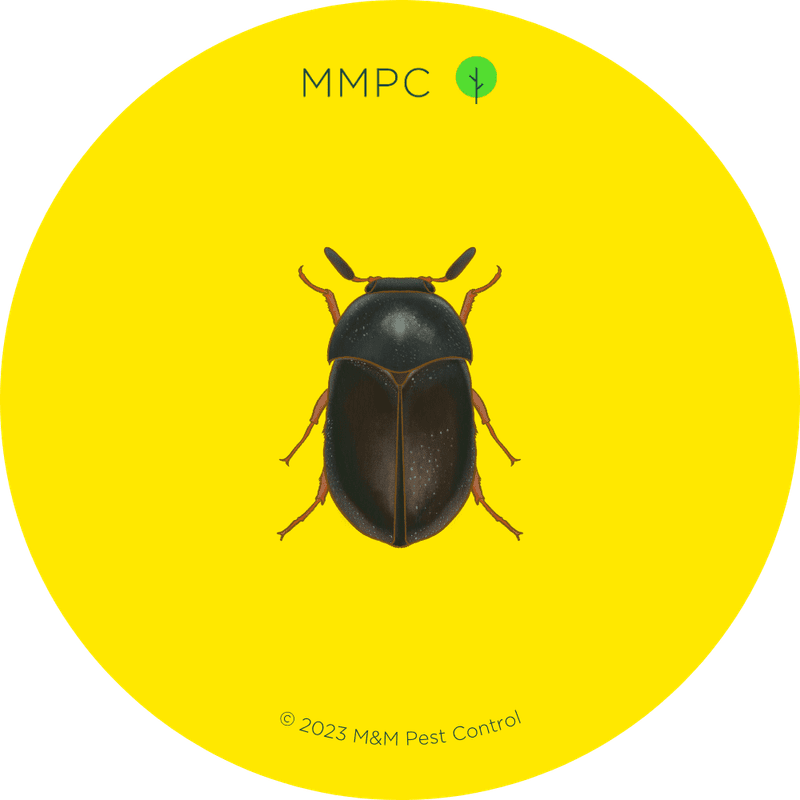
Size: 1/8″ – 3/16″ long (3 – 5 mm); about the size of a flaxseed
Color: Black or dark brown
Shape: Pill-shaped body with smooth elytra, short antennae, and 6 legs
Identifying Features
- 6 legs
- Short antennae tipped with a 3-segment club (may not be visible if tucked under the pronotum)
- Pill-shaped body with white undersides
- Head and thorax covered by a hood-like plate (pronotum)
- Hardened forewings (elytra) are smooth and solid black or dark brown in color
- Able to fly
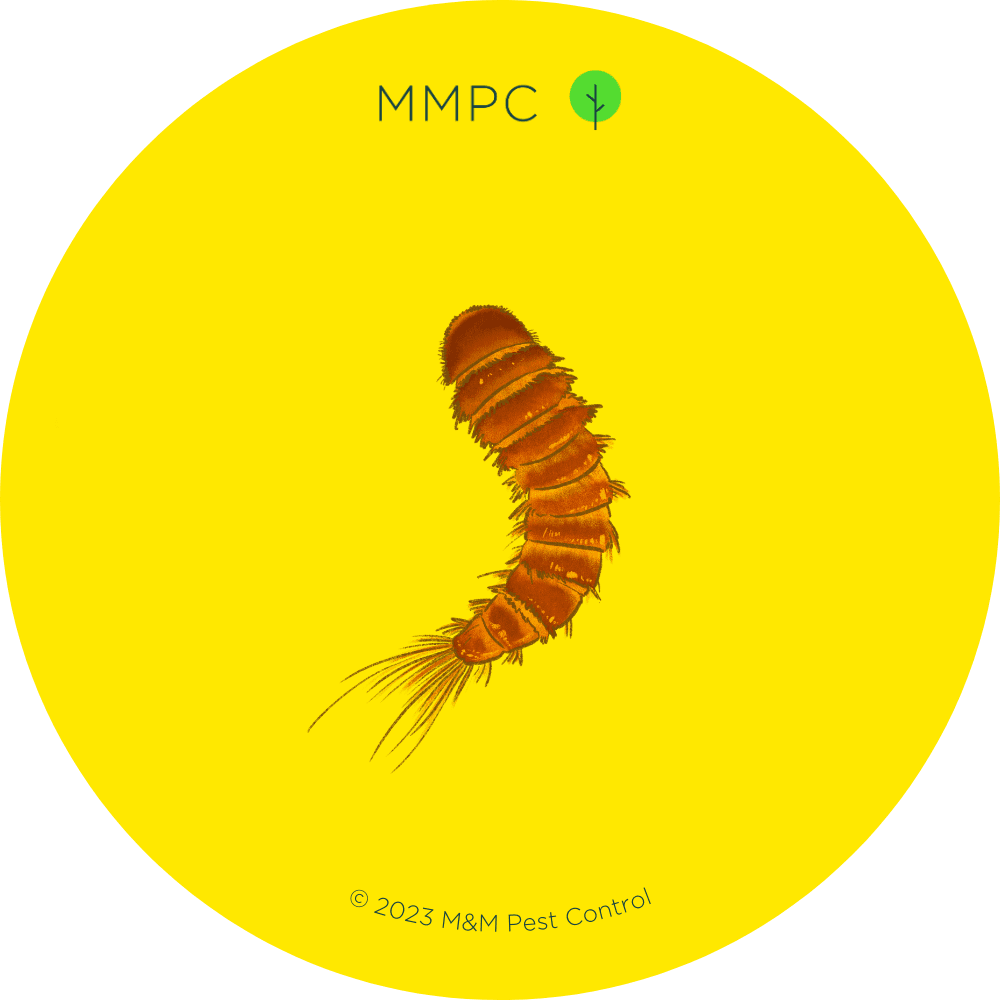
Size: Up to 5/16″ long (7 mm); about the size of long grain rice
Color: Golden to dark brown
Shape: Long, carrot-shaped body with short bristles and a tuft of long hair at the back
Identifying Features
- 6 short, stubby legs (not visible from above)
- Elongated, carrot-shaped body with alternating light and brown stripes and tapers towards the rear
- Covered in short, golden-brown bristles (setae)
- Tail end has a tuft of long, thin hairs
Varied Carpet Beetle
Anthrenus verbasci
Varied carpet beetles are another common species found throughout the world. Their larvae are sometimes referred to as “woolly bears” due to the characteristic tufts of hair on their bodies.
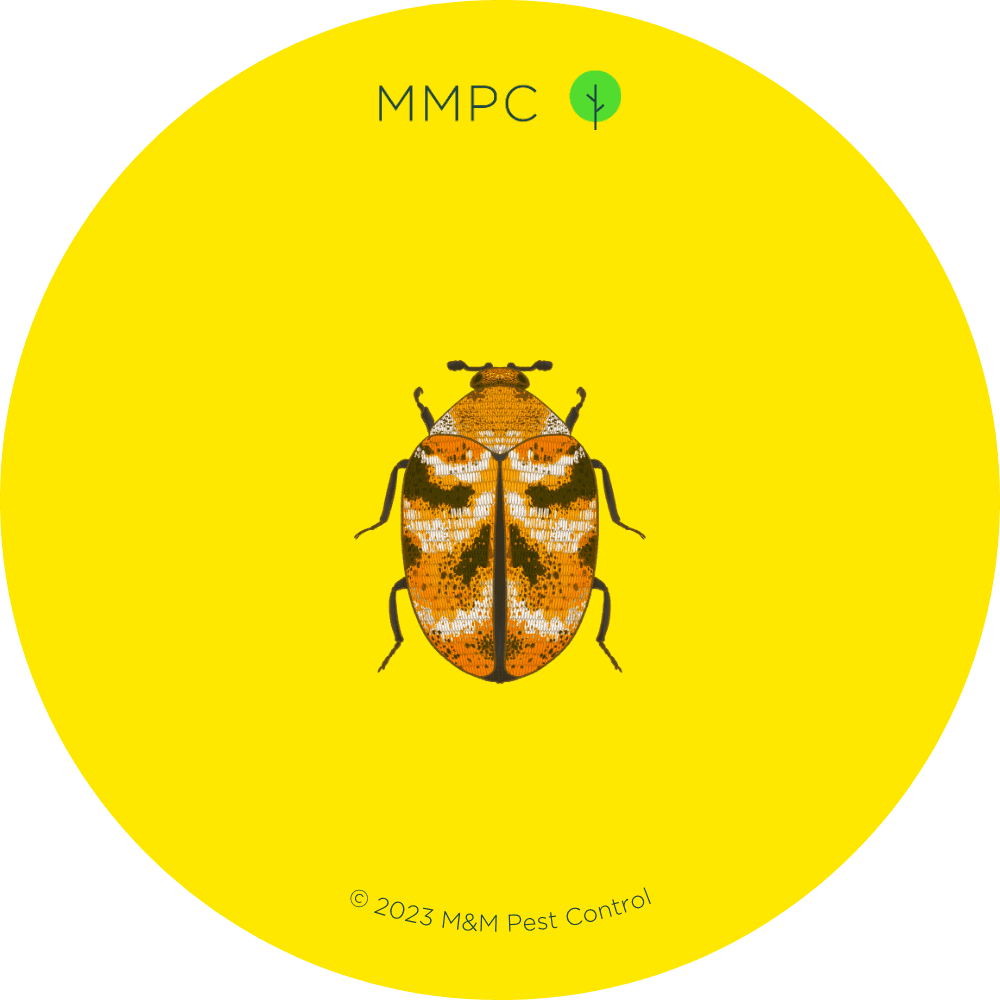
Size: 1/10″ – 1/6″ long (2.5 – 4 mm); about the size of a sesame seed
Color: Black with mottled white, brown, and dark yellow patterns
Shape: Oval-shaped body with mottled elytra, short antennae, and 6 legs
Identifying Features
- 6 legs
- Short antennae tipped with a 3-segment club (may not be visible if tucked under the pronotum)
- Oval-shaped body with greyish-yellow undersides
- Head and thorax covered by a hood-like plate (pronotum)
- Hardened forewings (elytra) mottled with brown and yellow scales, with 3 zig-zagging bands of white scales
- Able to fly
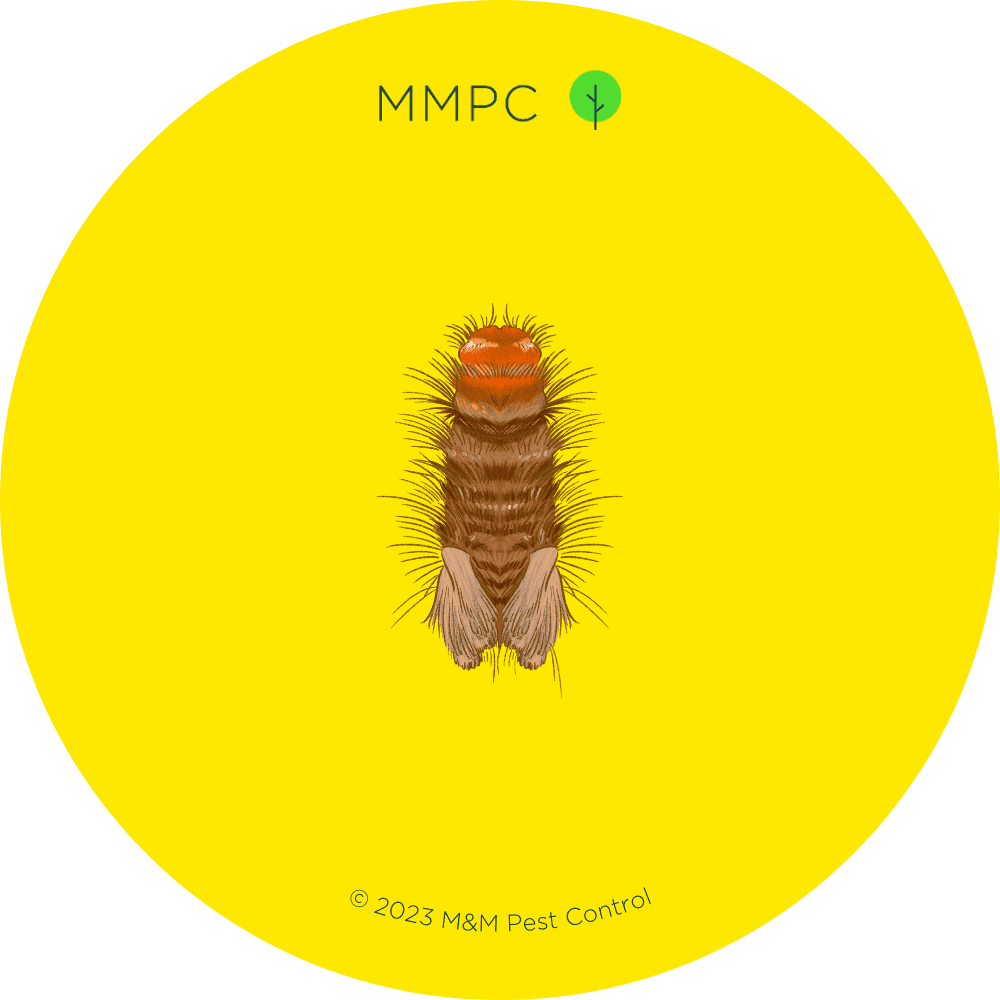
Size: Up to 1/5″ long (5 mm); about the size of a rice grain
Color: Light and dark brown
Shape: Cigar-shaped body with long bristles and 3 tufts of hair on its rear
Identifying Features
- 6 short, stubby legs (not visible from above)
- Orange or light brown head
- Cigar-shaped body with dark brown stripes and is slightly broader at the rear
- Covered in long bristles (setae) that are yellow-orange or light brown
- Tail end has 3 pairs of dense, backwards-growing tufts of hair
Furniture Carpet Beetle
Anthrenus flavipes
Furniture carpet beetles are more common in the South where the climate is warmer, but they can occasionally be found in heated homes and buildings in New York.
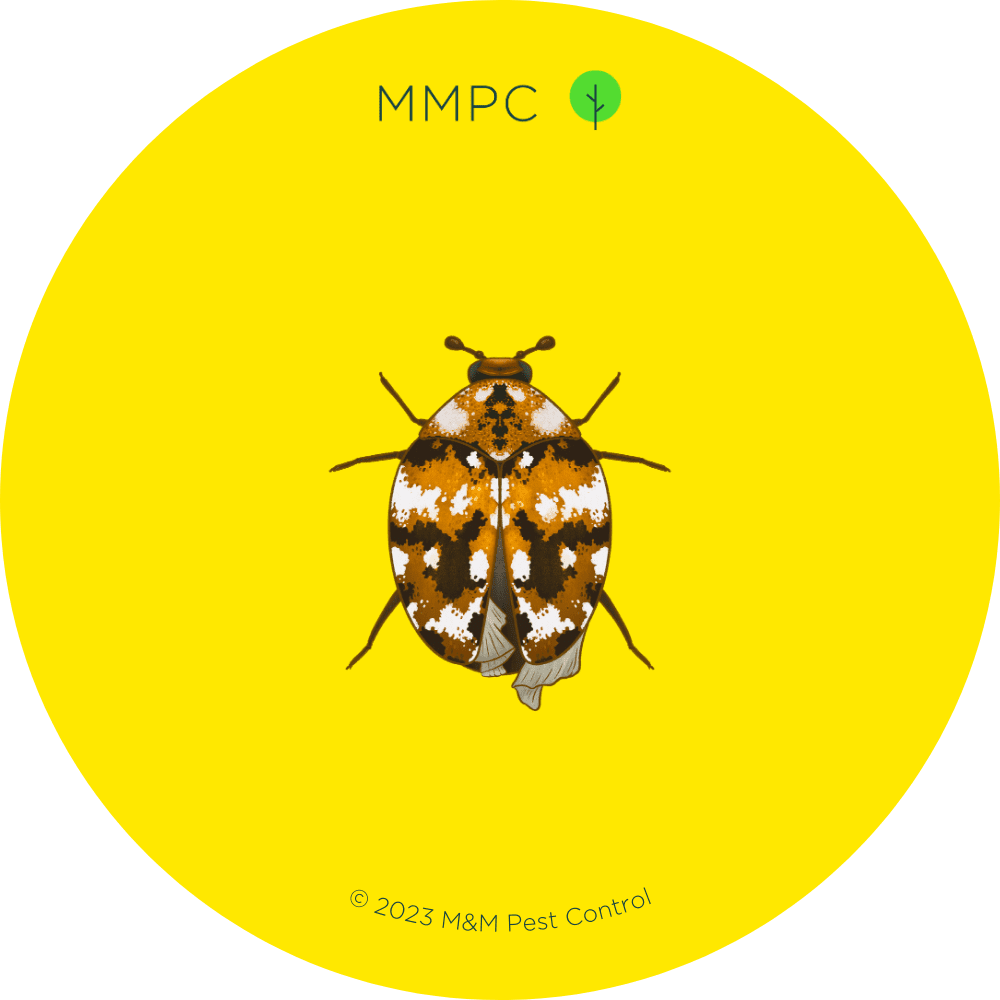
Size: 1/12″ – 1/6″ long (2 – 4 mm); about the size of a sesame seed
Color: Black with white, brown, and dark yellow patterns
Shape: Wide, oval-shaped body with mottled elytra, short antennae, and 6 legs
Identifying Features
- 6 legs
- Short antennae tipped with a 3-segment club (may not be visible if tucked under the pronotum)
- Wide, oval-shaped body with white or yellow undersides
- Head and thorax covered by a hood-like plate (pronotum)
- Hardened forewings (elytra) mottled with symmetrical patches of white, brown, and dark yellow scales
- Able to fly
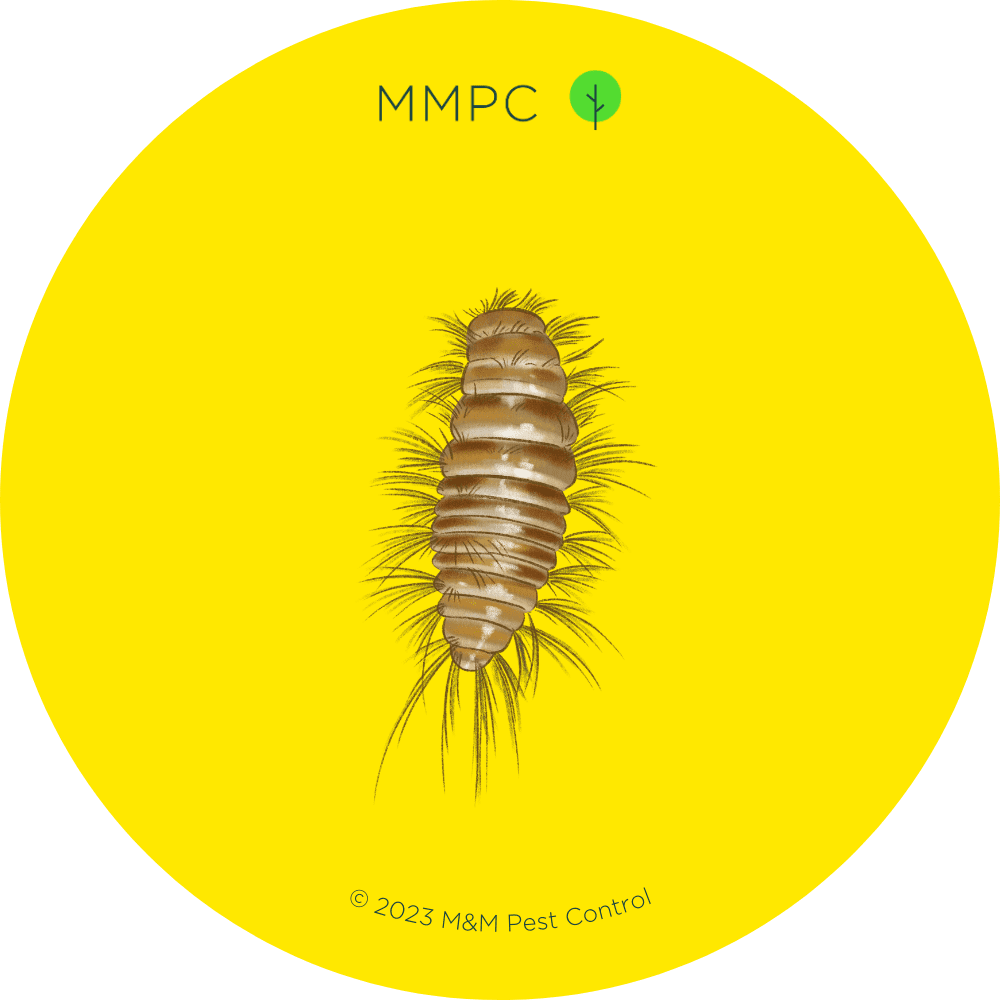
Size: Up to 1/5″ long (5 mm); about the size of a rice grain
Color: Reddish-brown with brown or black hairs
Shape: Elongated body with long bristles and a long, vibrating bundle of hair on its rear
Identifying Features
- 6 short, stubby legs (not visible from above)
- Elongated body with dark, reddish-brown stripes and is slightly narrower at the rear
- Covered in long bristles (setae) that are brown or black
- Tail end has a long, vibrating bundle of hairs


